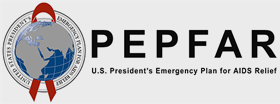
Private pharmacies play a significant role in changing how people with HIV receive life-changing medicine. In Mozambique, where approximately 13 percent of adults are HIV positive, clients typically receive their antiretroviral drugs (ARVs) through overcrowded public health facilities. USAID’s private-sector engagement policy encourages a shift toward market-based solutions, as described in Driving Last-Mile Solutions to Ensure Access to Public Health Commodities, a report on key activities to ensure equitable access to health commodities for those who need them.
Bottlenecks at these public health facilities are thought to be barriers to Mozambique achieving its goal of having 95 percent of HIV-positive people on treatment. Providing a more convenient, patient-centered pick-up option is thought to reduce barriers to patient retention and improve treatment outcomes.
On the other hand, private pharmacies are already in many communities and are typically open on weekends and evenings. Distributing ARVs through these private pharmacies provides people living with HIV with a more convenient option. The most important measure of success might be the number of patients who no longer lose a full day of work to access their treatment.
There were 74 private pharmacies participating by July 2022, receiving patients from 39 public health facilities. More than 18,500 people living with HIV have registered to pick up their ARVs at private pharmacies, and the number is steadily growing. Mozambique has proved that this model is working and is growing to include more private pharmacies to serve more clients in a private, client-friendly environment closer to their communities.
To establish this decentralized drug distribution (DDD) approach for ARVs, new systems are needed to provide full visibility and traceability of the commodities from the hospital pharmacy to the private pharmacy's shelf and into the client's hands.
The USAID Global Health Supply Chain Program-Procurement and Supply Management (GHSC-PSM) project partnered with Mozambique’s Ministry of Health HIV and AIDS Program, CMAM and numerous other local partners, to establish this innovative approach for ARVs.
Pharmacies were recruited to dispense ARVs through a tender advertised in local media, and pharmacists received training from trained provincial staff. Pharmacies are compensated for this dispensing role and receive regular training and financial support to ensure internet connectivity.
Multi-month dispensing (MMD) of three months is already the national policy in Mozambique, so once patients pick up the last dose of ARVs from the health facility, they have a three-month supply until they visit their selected pharmacy for resupply. During the three months, their records are transferred to the pharmacy, and the provincial warehouse delivers the ARVs to the pharmacy along with a month of buffer stocks.
Pharmacies, health facilities, and patients have responded enthusiastically to the new distribution approach, and the number of patients receiving their ARVs from private pharmacies in their communities is increasing.
Read the full report - Driving Last-Mile Solutions to Ensure Access to Public Health Commodities.


